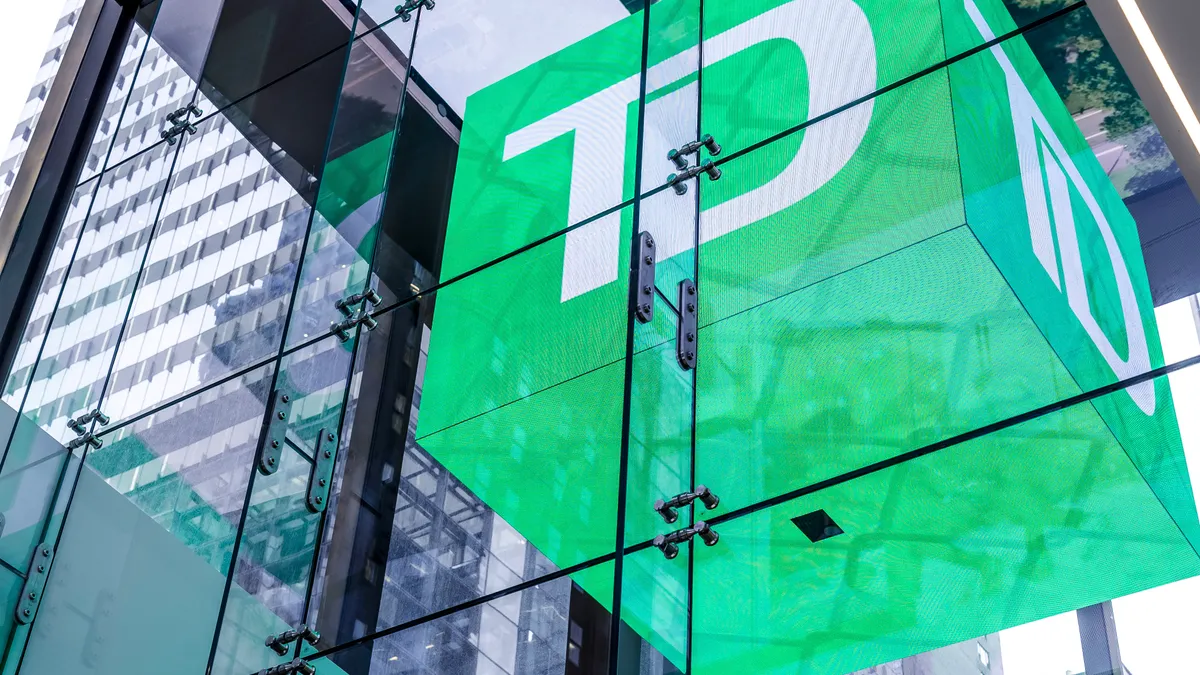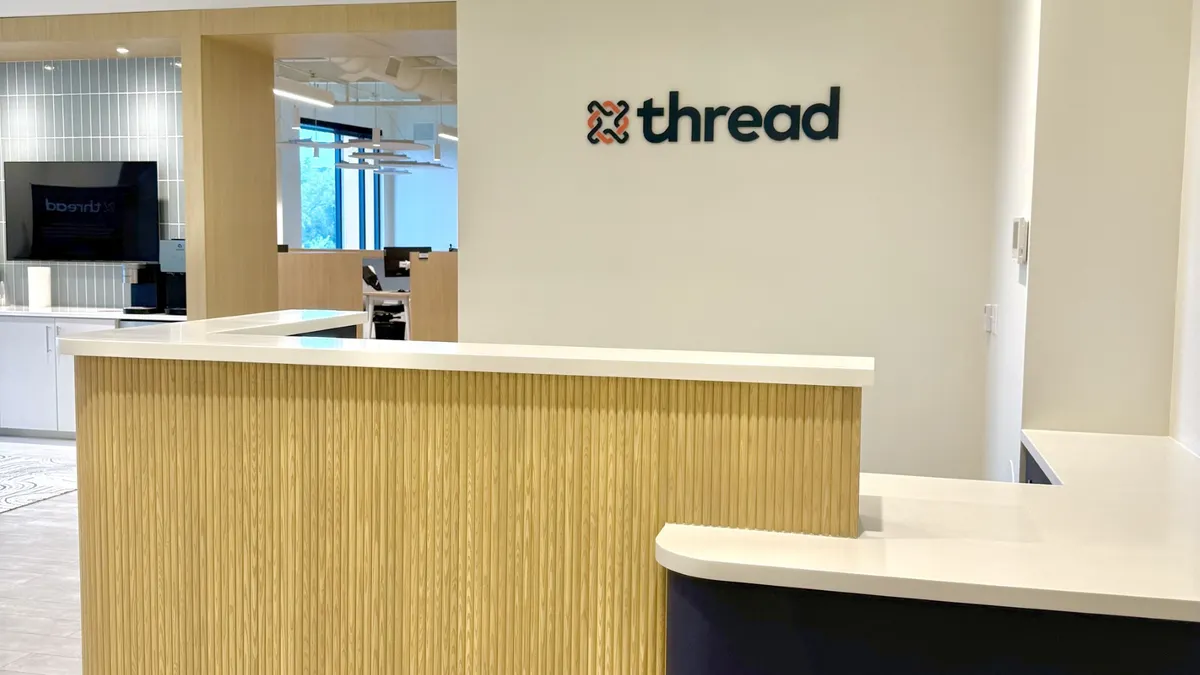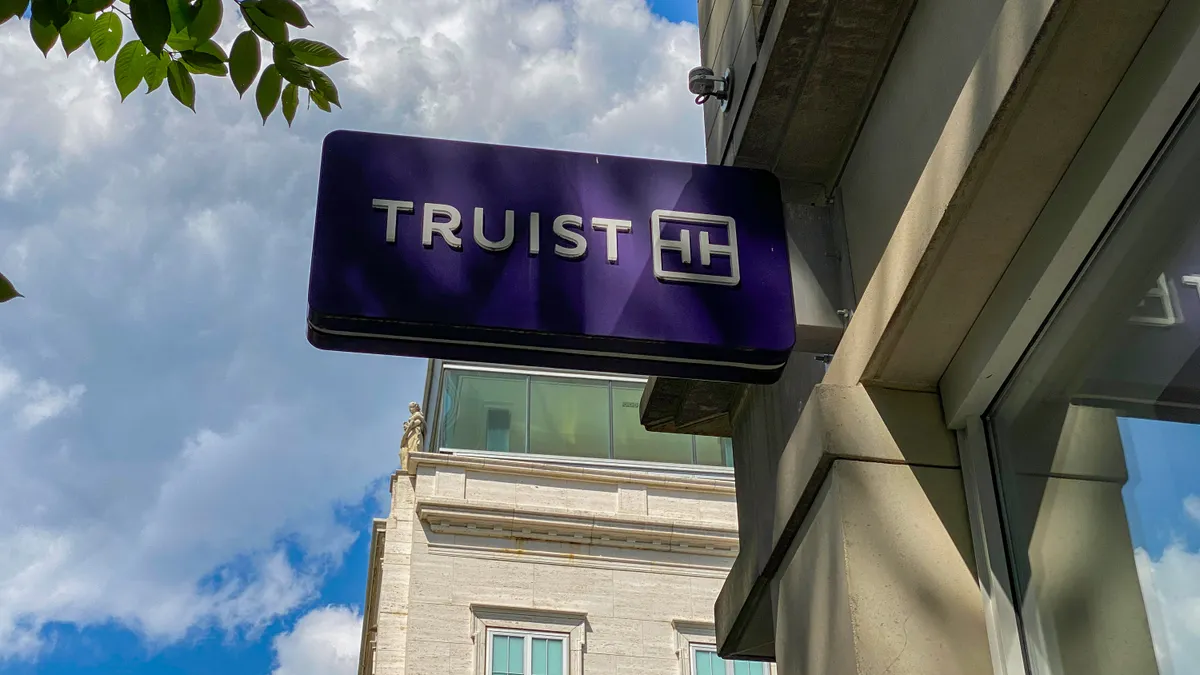TD and First Horizon have terminated their proposed $13.4 billion merger over “uncertainty” as to when the deal might gain lagging regulatory approvals, the banks announced Thursday.
TD will pay First Horizon $200 million in cash, in addition to a $25 million reimbursement that was earlier agreed as part of the transaction.
First Horizon CEO Bryan Jordan called the termination “unfortunate and unexpected,” in a statement, adding that the Memphis, Tennessee-based bank “will continue on its growth path operating from a position of strength and stability.”
TD CEO Bharat Masrani, meanwhile, said the decision “provides our colleagues and shareholders with clarity.”
It is debatable whether the TD-First Horizon merger’s collapse was “unexpected.” The transaction’s fate has been the subject of questions for months.
Masrani told a conference in January that the timetable for approval — particularly from U.S. regulators — was “unknown.”
“The latest deals seem to take longer than [they] used to,” he said, according to The Globe and Mail.
Masrani reiterated at TD’s annual general meeting last month that his bank continues to “see the benefits” of the merger.
“We’ve outlined [them] very clearly,” Masrani said at the time.
Valuation questions
But time has not historically been a friend to this deal. The banks in February extended the merger’s termination date until May 27. TD warned three weeks later that it did not expect to obtain the necessary regulatory approvals by then.
TD reiterated in its statement Thursday that it “does not have a timetable for regulatory approvals ... for reasons unrelated to First Horizon.”
A spokesperson for First Horizon, meanwhile, told Reuters the termination was solely related to TD, and had nothing to do with the crisis of confidence that has sent share prices plummeting at a number of U.S. banks. Some depositors, in the wake of the March failures of Signature and Silicon Valley Bank, have moved their money — in fits and starts away from regionals.
First Horizon CFO Hope Dmuchowski sought to reassure investors on a call Thursday before the market opened.
“We have seen no notable changes to our outflows,” she said, according to Bloomberg. “It’s been consistent since the beginning of March.”
Nonetheless, shares in the bank fell 35% by 10 a.m. Eastern time, to $9.82, the wire service reported. Its shares had already lost roughly 40% of their value this year, the Financial Times reported. They closed at $15.05 on Wednesday.
By comparison, TD offered to pay $25 per share when it proposed acquiring First Horizon in February 2022.
“Given the precipitous drop in regional bank valuations …, the fact that [the deal] is not preceding at the original valuation is a positive,” Barclays analyst John Aiken said, according to Bloomberg. “However, we are surprised that the parties could not come to an agreed upon lower price.”
Aiken warned of “broader repercussions” from TD “walking away."
"This could affect the willingness of potential partners to sit across the table from TD in the future,” he said, according to Reuters.
Whither TD’s U.S. strategy?
The First Horizon deal would have catapulted TD from the eighth-largest bank in the U.S. to the sixth and given it a presence in several new markets, especially in the Southeast.
As regulators weighed whether to sign off, TD undertook a number of efforts to nudge the deal toward completion. It agreed to open 15 new branches in Charlotte, North Carolina, by 2025, pledging that at least 25% would be in majority-nonwhite or low- to moderate-income areas.
It unveiled a five-year, $50 billion community benefits plan in February that pledged to boost residential lending to LMI and nonwhite borrowers. It launched a credit program for Black entrepreneurs and a web accessibility tool for users with disabilities.
The TD-First Horizon deal had its consistent detractors. Sen. Elizabeth Warren, D-MA, asked the Office of the Comptroller of the Currency in June to block the merger after a Capitol Forum report alleged the bank incentivized employees to enroll customers in new accounts and services like overdraft protection without their consent.
But regulators couldn’t be accused of being anti-TD. They signed off in February on the Canadian bank’s $1.3 billion proposal to acquire Wall Street brokerage Cowen.
The lag in the approval timeline has, however, offered a humbling of expectations for TD. The bank appeared so confident when the First Horizon merger was proposed, that it offered to pay an additional $0.65 per share if the transaction wasn’t closed by Nov. 27, 2022.
The collapse of the First Horizon deal leaves TD with C$21 billion more than its capital requirement, a Bloomberg analysis found — giving it the option to do buybacks, find another acquisition target or make another push in the U.S., albeit likely at a lower price point.
"We believe TD shareholders will be concerned about the bank's ability to deploy excess capital into the U.S. market given regulatory headwinds that could persist for the foreseeable future," Keefe, Bruyette & Woods analyst Mike Rizvanovic said, according to Reuters.
The bank also has a stake in Charles Schwab, which has struggled in the crisis that accelerated in March.
Peer comparison
The C$21 billion surplus far surpasses TD’s Canadian peers — two of which are either trying to get a deal over the finish line, or recently have done so.
Royal Bank of Canada agreed in November to buy HSBC’s Canada unit for $10 billion. HSBC on Tuesday said it expected to complete the transaction in the first quarter of 2024 — months later than originally projected.
Additionally, Canada’s Competition Bureau on Monday asked for more information from market participants and everyday Canadians to help them evaluate the RBC/HSBC tie-up.
Another major Canadian lender, BMO, received approval in January from the Federal Reserve and OCC to complete its $16.3 billion acquisition of Bank of the West.
“Though disappointed with the outcome, we move forward with a strong, growing franchise in the United States, servicing more than 10 million customers across our footprint," Masrani said in Thursday’s statement. "I want to thank First Horizon for their partnership over the last several months and wish them enormous success for the future.”





















